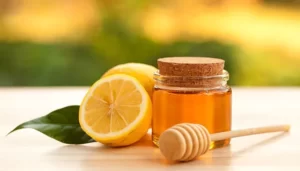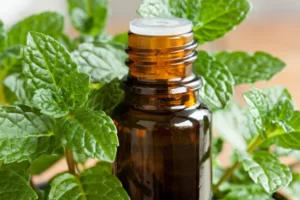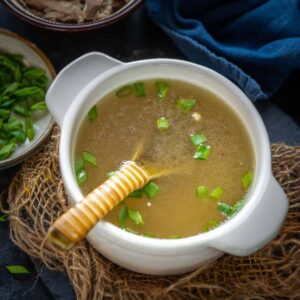Table Of Content
- 1 Home Remedies for a Cold: Kick That Cough Naturally with Vitamin C, Zinc, and Herbal Tea
- 2 The Power of Home Remedies For a Cold:
- 2.1 1. Hydration and Rest:
- 2.2 2. Steam Inhalation:
- 2.3 3. Ginger and Honey:
- 2.4 4. Saltwater Gargle:
- 2.5 5. Warm Compress:
- 2.6 6. Humidifiers:
- 2.7 7. Echinacea Supplements:
- 2.8 8. Vitamin C-Rich Foods:
- 2.9 9. Zinc Lozenges:
- 2.10 10. Natural Immune Boosters:
- 2.11 11. Herbal Teas:
- 2.12 12. Honey and Lemon:
- 2.13 13. Garlic’s Antiviral Properties:
- 2.14 14. Essential Oils for Congestion:
- 2.15 15. Restorative Chicken Soup:
- 2.16 16. Elderberry Syrup:
- 2.17 17. Over-the-Counter Medications:
- 2.18 18. Preventing Future Colds:
- 3 What to Know About Cold and Flu Season
- 4 Frequently Asked Questions (FAQs) For Remedies for a Cold:
- 5 Conclusion:
Home Remedies for a Cold: Kick That Cough Naturally with Vitamin C, Zinc, and Herbal Tea
The dreaded sniffles, the scratchy throat, the fatigue – nobody enjoys feeling under the weather with a cold. While these common ailments might seem like mere annoyances, their symptoms can significantly impact your daily life. But before you reach for over-the-counter medications, consider the powerful arsenal of home remedies of a cold readily available in your kitchen and beyond.
This comprehensive guide explores the best home remedies for a cold, providing you with effective ways to alleviate symptoms and promote faster recovery. So, grab a warm blanket, a cup of herbal tea, and get ready to learn how to conquer those pesky cold symptoms with natural solutions!
Understanding the Common Cold:
Before diving into remedies, let’s understand what we’re dealing with. A common cold is a viral infection of the upper respiratory tract, typically caused by rhinoviruses. It’s highly contagious and spreads through respiratory droplets when an infected person coughs or sneezes.
Symptoms of a cold can include:
- Runny or stuffy nose
- Cough
- Sore throat
- Sneezing
- Headache
- Body aches
- Fatigue
- Low-grade fever
While these symptoms are usually mild and resolve within a week, they can be quite disruptive and uncomfortable.
The Power of Home Remedies For a Cold:
While there’s no magic cure for the common cold, several natural remedies can offer significant relief and help you recover faster. These remedies focus on addressing specific symptoms, from soothing a sore throat to clearing congestion, and can be a safe and effective way to manage your cold.
Here’s a comprehensive exploration of various home remedies for cold symptom:
1. Hydration and Rest:

- Hydration: Staying hydrated is crucial for thinning mucus and preventing dehydration, which can worsen symptoms. Drink plenty of fluids like water, broth, and herbal teas.
- Rest: Your body needs time to recover. Get plenty of sleep and avoid strenuous activity.
2. Steam Inhalation:

- Benefits: Inhaling warm steam helps loosen mucus and soothe inflamed nasal passages, offering relief from congestion and making it easier to breathe.
- Method: Boil water in a pot, add essential oils like eucalyptus or peppermint (optional), and carefully inhale the steam for several minutes.
3. Ginger and Honey:

- Ginger: Its anti-inflammatory properties can soothe a sore throat and reduce inflammation.
- Honey: This natural cough suppressant and antimicrobial agent helps soothe irritated throat tissues and suppress coughs.
- Together: Combine ginger and honey in hot water to make a soothing tea or add them to your favorite hot beverage.
4. Saltwater Gargle:

- Benefits: Gargling with warm saltwater can alleviate a sore throat by reducing inflammation and loosening mucus.
- Method: Mix half a teaspoon of salt in a cup of warm water and gargle for 30 seconds several times a day.
5. Warm Compress:

- Benefits: Applying a warm compress to your face can relieve sinus pressure and headaches.
- Method: Soak a clean washcloth in warm water, wring it out, and apply it to your forehead or sinuses for 10-15 minutes.
6. Humidifiers:

- Benefits: Adding moisture to the air with a humidifier can loosen mucus and soothe irritated nasal passages, especially beneficial in dry climates.
7. Echinacea Supplements:

- Benefits: Echinacea may boost the immune system and reduce the duration and severity of a cold.
- Dosage: Consult your doctor about the recommended dosage and timing.
8. Vitamin C-Rich Foods:

- Benefits: Vitamin C supports a healthy immune system. Include citrus fruits, bell peppers, broccoli, and leafy greens in your diet.
9. Zinc Lozenges:

- Benefits: Zinc lozenges may shorten the duration of a cold when taken at the first sign of symptoms.
- Dosage: Follow the recommended dosage on the package and consult your doctor if you have any underlying health conditions.
10. Natural Immune Boosters:

- Dietary choices: Include fruits, vegetables, whole grains, and lean protein in your diet.
- Lifestyle changes: Get regular exercise, manage stress, and prioritize sleep.
11. Herbal Teas:

- Benefits: Certain herbal teas like chamomile, peppermint, and ginger can offer relief from specific symptoms and promote relaxation.
- Preparation: Steep the herbs in hot water for several minutes and strain before drinking.
12. Honey and Lemon:

- Benefits: Honey’s soothing and antimicrobial properties combine with lemon’s vitamin C content to provide relief from sore throat and cough.
- Mixture: Mix honey and lemon juice in warm water and drink several times a day.

- Benefits: Garlic possesses antiviral properties that can help combat cold viruses and shorten the duration of your illness.
- Incorporation: Add fresh garlic to your meals, take garlic supplements, or consume garlic tea.
14. Essential Oils for Congestion:

- Benefits: Aromatherapy using essential oils like eucalyptus, peppermint, and tea tree can provide relief from congestion and promote easier breathing.
- Methods: Diffuse the oils in the air, add them to a warm compress, or dilute them with a carrier oil for topical application.
15. Restorative Chicken Soup:

- Benefits: Warm chicken soup provides hydration, electrolytes, and nutrients that can aid in recovery. Additionally, the steam helps clear congestion and the broth soothes a sore throat.
- Preparation: Make your own homemade chicken soup using fresh ingredients for maximum benefit.
16. Elderberry Syrup:

- Benefits: Elderberry syrup may alleviate cold symptoms and reduce their duration.
- Options: You can make your own elderberry syrup or purchase it from a reputable source.
17. Over-the-Counter Medications:
- Considerations: Over-the-counter medications can offer temporary relief from specific symptoms but don’t cure the cold itself. Consult your doctor before taking any medications, especially if you have any underlying health conditions.
- Types: Common OTC medications include decongestants, pain relievers, and cough suppressants.
18. Preventing Future Colds:
- Hygiene practices: Wash your hands frequently, especially after being in public places, and avoid contact with sick individuals.
- Lifestyle changes: Get enough sleep, manage stress, eat a healthy diet, and exercise regularly.
What to Know About Cold and Flu Season
As the leaves change color and the air turns crisp, we enter the dreaded cold and flu season. This time of year often brings an increase in respiratory illnesses, impacting our health and well-being. To navigate this season effectively, it’s crucial to understand the key factors at play.
Here’s what you need to know about cold and flu season:
1. Peak Season:
- Timing: Cold and flu season typically runs from October through May in the Northern Hemisphere and April through September in the Southern Hemisphere.
- Factors influencing peak season: Factors like weather changes, increased indoor activities, and back-to-school schedules contribute to the spread of viruses.
2. Common Viruses:
- Rhinoviruses: These are the most common cause of colds, leading to symptoms like runny nose, sneezing, and sore throat.
- Influenza viruses: These cause the flu, which is a more severe illness compared to a cold, with symptoms like fever, chills, muscle aches, and fatigue.
3. Transmission:
- Respiratory droplets: Viruses spread through respiratory droplets expelled when an infected person coughs, sneezes, or talks.
- Contact with contaminated surfaces: Viruses can also spread through contact with contaminated surfaces, such as doorknobs and countertops.
4. Prevention:
- Vaccination: Getting vaccinated against the flu is the most effective way to prevent the flu.
- Hygiene measures: Frequent handwashing, using hand sanitizer, and avoiding close contact with sick individuals can help prevent the spread of viruses.
- Healthy habits: Maintaining a healthy lifestyle with good sleep, proper nutrition, and regular exercise can boost your immune system and improve your overall health.
5. Home Remedies For Cold:
- Rest: Adequate rest helps your body fight off the illness.
- Hydration: Drinking plenty of fluids like water, broths, and herbal teas helps thin mucus and prevent dehydration.
- Natural remedies: Home remedies like ginger, honey, garlic, and echinacea may help alleviate symptoms and promote recovery.
6. When to Seek Medical Attention:
- Severe symptoms: If you experience high fever, difficulty breathing, chest pain, or severe dehydration, seek immediate medical attention.
- Chronic conditions: People with underlying health conditions should consult their doctor for guidance on managing their illness.
- Symptoms persisting beyond two weeks: If your symptoms are not improving after two weeks, consult your doctor to rule out any underlying medical conditions.
By understanding cold and flu season, taking preventive measures, and utilizing natural remedies, you can navigate this season with confidence and maintain your health and well-being.
Here are some additional tips:
- Clean and disinfect surfaces regularly.
- Cover your coughs and sneezes with a tissue or your elbow.
- Avoid touching your face.
- Eat a healthy diet rich in fruits, vegetables, and whole grains.
- Manage stress levels through relaxation techniques like yoga or meditation.
Remember, staying informed and taking proactive steps can make a significant difference in protecting yourself and your loved ones from the common cold and flu.
Frequently Asked Questions (FAQs) For Remedies for a Cold:
Q: How long does a typical cold last?
A: The average duration of a cold is 7-10 days. However, it can vary depending on the individual and their overall health.
Q: Can you catch a cold from cold weather?
A: While the cold weather itself doesn’t directly cause a cold, it can contribute to its spread by increasing the amount of time people spend indoors in close proximity.
Q: Are antibiotics effective against colds?
A: No, antibiotics are only effective against bacterial infections and have no effect on viral infections like the common cold.
Q: Is exercise recommended during a cold?
A: Light exercise like walking can be beneficial in some cases, but it’s important to listen to your body and rest if you feel fatigued.
Q: Can herbal teas replace medical treatment?
A: While herbal teas can offer relief from some symptoms, they should not be considered a replacement for medical treatment. Consult your doctor if your symptoms are severe or don’t improve after a few days.
Q: What are the best practices for preventing colds?
A: The best practices include frequent hand washing, avoiding close contact with sick people, getting enough sleep, eating a healthy diet, exercising regularly, and managing stress.
Conclusion:
As we’ve explored, a wide range of effective home remedies for a cold can help you conquer the common cold and feel better faster. By incorporating these natural solutions into your recovery plan, you can alleviate your symptoms, shorten the duration of your illness, and promote overall well-being.
Remember, the key to conquering the sniffles lies in a combination of natural remedies, good hydration, rest, and a healthy lifestyle. So, embrace the comforting warmth of chicken soup, soothe your throat with a honey-lemon mixture, and breathe in the relief offered by essential oils. With these natural allies at your side, you’ll be back on your feet and enjoying life again in no time!
Read Also: 10 Benefits of Morning Walks on an Empty Stomach! You Won’t Believe!


Leave a Reply